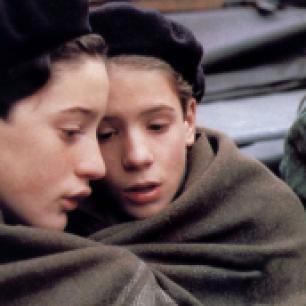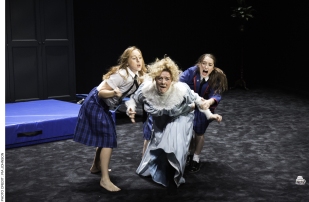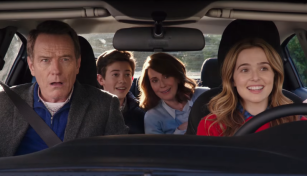
29/01/17
It’s twenty years after the events of Trainspotting and the only running feet in evidence belong to a stranger, pounding a treadmill in a busy gym. But as we quickly discover, mortality waits in the wings, ready to claim the lives of the unwary.
Following the death of his mother, Renton (Ewan McGregor) returns to his home city to pay his respects and to look up his old cronies. Spud (Ewen Bremner) is still a hopeless junkie and just about ready to end his own life when Renton comes (quite literally) to his rescue. Sick Boy (Jonny Lee Miller) is running his auntie’s dilapidated pub and attempting to make a dishonest living by blackmailing a series of victims with the help of his Bulgarian girlfriend Veronika (Angela Nedyalkova). Begbie (Robert Carlyle) is still languishing in prison, but with the help of another inmate and a well-aimed shiv, manages to effect an escape. Time has not mellowed him in the slightest and he is still intent on avenging himself on the man who double-crossed him all those years ago. It’s strangely satisfying to note that Carlyle still excels at playing the consummate psychopath and it’s all too easy to understand Renton’s terror of his old adversary.
With T2, director Danny Boyle has crafted a sequel that more than pays lip service to its iconic predecessor. In fact, in certain respects, it betters the original. As a study of the city of Edinburgh, for instance, it’s a massive step up – Trainspotting was largely filmed in and around Glasgow, but T2 takes advantage of many of its home city’s most screenworthy locations. The cinematography of Anthony Dodd Mantle looks absolutely stunning and, as you would hope, there’s an energetic and propulsive soundtrack, a mixture of new material and golden oldies.
John Hodge’s screenplay is particularly astute, taking time to pay homage to many of the original film’s most iconic scenes and in many cases, subverting them. Renton’s ‘choose life’ speech is given a contemporary reboot, (spoken in of all places, in the fourth floor brasserie at Harvey Nicks) while Spud takes on the mantle of novelist Irvine Welsh as he starts to write down the foursome’s youthful adventures as a kind of prototype novel. (Keen-eyed viewers will spot the real Welsh in a cameo, reprising the role of wheeler-dealer Mikey). Occasional flashbacks to the first film and to the childhoods of the four main characters lend a bitter-sweet air of melancholy to the proceedings.
Not everything is perfect. It would have been nice to see Kelly McDonald and Shirley Henderson given a little more to do here and I would have liked to hear more from Renton’s widowed father (James Cosmo), but I suppose you can’t have everything. These shortcomings aside, T2 ranks as one of the most satisfying sequels ever, largely because it has the intelligence to honour its origins without being allowed to turn into a pale imitation. The packed Sunday afternoon screening we attended paid eloquent testimony to the fact that Danny Boyle has a palpable, and well deserved hit on his hands.
T2 also features one of the most memorable final sequences of recent years as Renton, back in his childhood bedroom, finally rocks out to a new version of Lust For Life.
Don’t miss this one, it’s a keeper.
4.6 stars
Philip Caveney

















